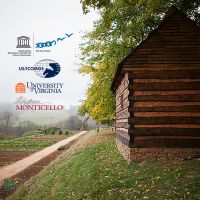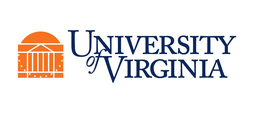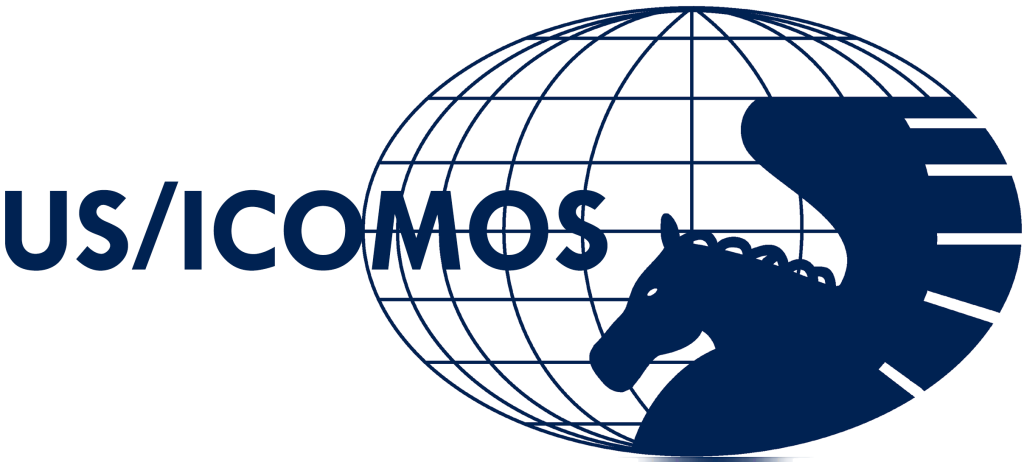FOR IMMEDIATE RELEASE - March 1, 2018
Media Contact: Mia Magruder Dammann, 434-984-7596
 On March 19-21, Thomas Jefferson’s Monticello, the University of Virginia and the United States Committee of the International Council on Monuments and Sites (US/ICOMOS) will jointly sponsor a public forum at the Jefferson School African American Heritage Center and an international conference at UVA on interpreting the history of slavery and its legacies, in collaboration with the United Nations Educational, Scientific and Cultural Organization (UNESCO) Slave Route Project: Resistance, Liberty, and Heritage.
On March 19-21, Thomas Jefferson’s Monticello, the University of Virginia and the United States Committee of the International Council on Monuments and Sites (US/ICOMOS) will jointly sponsor a public forum at the Jefferson School African American Heritage Center and an international conference at UVA on interpreting the history of slavery and its legacies, in collaboration with the United Nations Educational, Scientific and Cultural Organization (UNESCO) Slave Route Project: Resistance, Liberty, and Heritage.
The free, public forum, “Addressing the Legacy of Slavery in Public Policies and Spaces: International Perspectives,” will be held on March 21, 11:00 A.M. -1:00 P.M. at the Jefferson School African American Heritage Center. The program will focus on decision-making, challenges and design outcomes for memorials to the enslaved and commemorations at sites of enslavement and abolition, and include time for questions and reflections from the audience.
“We are pleased to bring leading voices, our community and organizations from around the world together in dialogue about our shared history,” Gary Sandling, vice president of visitor programs and services at Monticello, said. “This international approach will foster an understanding of slavery that transcends national boundaries and improve how we collectively communicate its impact.”
During the public forum, panelists from countries and organizations involved in the UNESCO Slave Route Project will share real world examples and examine the impact of various historical sites, museums and memorials, addressing questions like:
- How have memorials or museums brought awareness and changed the conversation about enslavement or liberation for their community?
- Have the “silences” traditionally associated with this history been removed or challenged by the presence of each respective site?
- Have the sites faced opposition? How have oppositions emerged and what forms have they taken?
- What were the goals for each memorial, historic site or museum? What has each accomplished?
The three-day professional conference, “Interpreting and Representing Slavery and Its Legacies in Museums and Sites: International Perspectives,” will explore the variety of approaches used at museums and sites around the Atlantic world to represent the history and legacies of the slave trade, slavery and emancipation. With experts from South Africa, the Netherlands, France and more, the conference on UVA’s Grounds will be the first international symposium of its kind hosted in North America.
“UNESCO works with its partners to make resistance against slavery an inspirational force for future generations,” UNESCO’s Assistant Director-General for Social and Human Sciences Nada Al-Nashif said.
“UVA is pleased to serve as host for this important conference,” said Executive Vice President and Provost Thomas C. Katsouleas. “UVA has been focused on actively pursuing and engaging in slavery’s history and relationship with place, on our Grounds and in our community. We hope to share our experiences and lessons learned with conference participants, and learn from them in turn.”
International museum and historic site practitioners, scholars and thought leaders, will engage with questions on the topic, including:
- What are the global impacts of the slave trade and its enduring legacies?
- How have understandings and representations of slavery changed over the past decades and varied from region to region?
- How are institutions portraying the horrors of slavery and reflecting the feelings, resistance and creativity of the enslaved people and their descendants?
- As historical actors in slavery, what steps have universities taken toward repairing historic injustices and spearheading new research on slavery?
- What roles do the arts, humanities and multimedia technologies play for interpreting and representing the memory of the history of slavery?
“History has shown that human conflict grows from the denial of the democratic principles of dignity, equality and mutual respect of all people, and by the acceptance through ignorance and prejudice the inequality of people and races,” said Bill Pencek, US/ICOMOS Executive Director. “US/ICOMOS hopes to encourage the public to learn from history, and not to commemorate its dark moments in ways that will promote social discord.”
For full program information and registration, visit monticello.org/unesco-conference. The public forum at Jefferson School African American Heritage Center is free, advance registration recommended at monticello.org/unesco-forum, and will be live streamed online for those who cannot attend in person. Registration for the three-day professional conference is $200, advance registration required.
Following the conference, a handbook on new approaches and best practices in interpreting slavery at museums and other sites will be published.
Sponsors
Participating Organizations
###
About The Thomas Jefferson Foundation at Monticello
The Thomas Jefferson Foundation was incorporated in 1923 to preserve Monticello, the home of Thomas Jefferson, in Charlottesville, Virginia. Today, the foundation seeks to share Jefferson’s world, his ideas and the relevance of history with a national and global audience. Monticello is recognized as a National Historic Landmark and a United Nations World Heritage Site. As a private, nonprofit organization, the foundation’s regular operating budget does not receive ongoing government support to fund its twofold mission of preservation and education. About 440,000 people visit Monticello each year. For information, visit Monticello.org.
About the University of Virginia
Founded by Thomas Jefferson in 1819, the University of Virginia sustains the ideal of developing, through education, leaders who are well-prepared to help shape the future of the nation and the world. The University is public, while nourished by the strong support of its alumni.
About US/ICOMOS
US/ICOMOS is a membership based non-profit organization that is part of the worldwide ICOMOS network of people, institutions, government agencies and private entities that support the conservation of the World’s heritage. Visit us at www.usicomos.org, on Facebook www.facebook.com/usicomos and Twitter www.twitter.com/usicomos.
About the UNESCO Slave Route Project: Resistance, Liberty, and Heritage
Ignorance or concealment of major historical events constitutes an obstacle to mutual understanding, reconciliation and cooperation among peoples. In the context of its Slave Route Project, UNESCO has broken the silence surrounding the slave trade and slavery that have concerned all continents and caused the great upheavals that have shaped our modern societies. By this means, UNESCO aims to recall the crucial importance of the transmission of history in order to shed light on the fight against all forms of oppression and racism today and to build fairer societies. Learn more at en.unesco.org/slave-route-project.
The Jefferson School African American Heritage Center
Located in the Jefferson School City Center, The Jefferson School African American Heritage Center’s mission is to honor and preserve the rich heritage and legacy of the African-American community of Charlottesville-Albemarle, Virginia and to promote a greater appreciation for, and understanding of, the contributions of African Americans and peoples of the Diaspora locally, nationally and globally.





